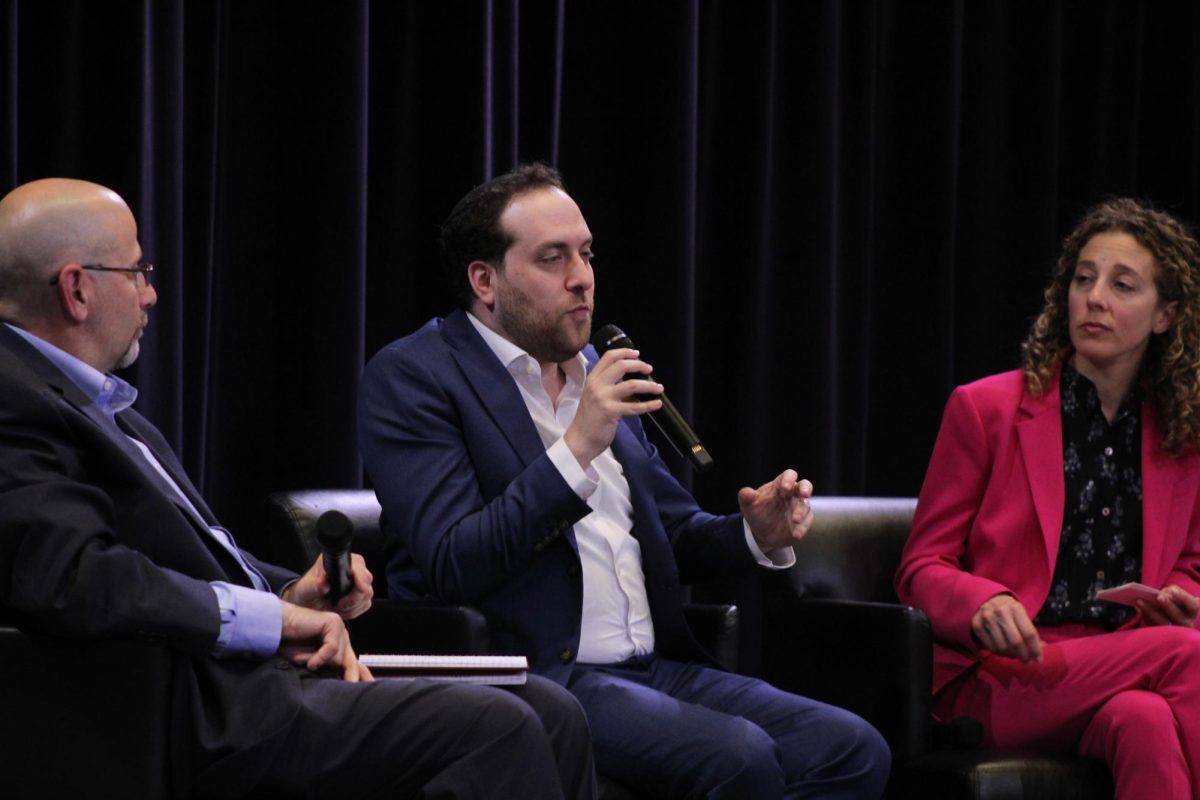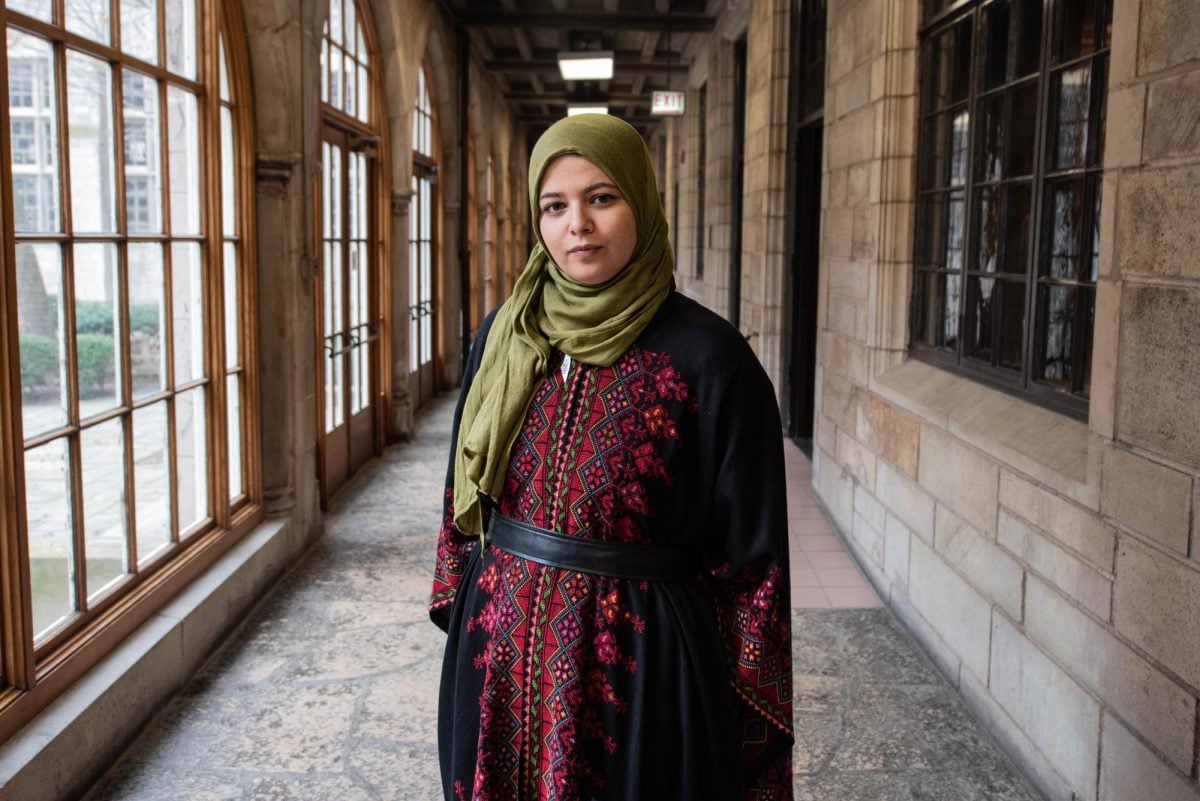Dan Shapiro, a former U.S. ambassador to Israel, and Yair Rosenberg, a writer for The Atlantic, analyzed President Donald Trump’s Middle East policy as well as the rise of antisemitism in the U.S. at a speaker event hosted by Northwestern Hillel on Monday.
About 100 people attended the talk in the McCormick Foundation Center Forum, which was moderated by political science Prof. Danielle Gilbert and cosponsored by the Crown Family Center for Jewish and Israel Studies and the Medill School of Journalism, Media, Integrated Marketing Communications.
The talk came at the start of Hillel’s Israel Week, which aligns each year with holidays commemorating the country’s independence day and remembrance day for fallen soldiers.
Andrew Kupfer, Hillel’s vice president and a Weinberg senior, said the event combined Shapiro’s expertise on foreign policy and Rosenberg’s knowledge of Jewish life in America.
“For me personally, it’s been really difficult to separate everything happening and distill one set of issues with another — a lot of it’s been coming together,” Kupfer said. “I think having them both speak at the same time was really nice and helpful for getting everything across the board.”
Shapiro served as an ambassador from 2011 to 2017 under then-President Barack Obama. He also advised the special envoy to Iran and the Bureau of Near Eastern Affairs during Joe Biden’s presidency, later becoming the deputy assistant secretary of defense for the Middle East from 2024 to the end of Biden’s term.
Shapiro said Trump bases his foreign policy more on “instincts” than strategy, pointing out that “grievances” and “selfishness” have shaped his administration’s emphasis on American self-interest.
The former ambassador called Trump “the grand deal-maker” and said the president is seeking partnerships with Russia and China to dominate the Western Hemisphere at the expense of America’s traditional allies.
“He talks about peace through strength. I see it more as diminishment through weakness,” Shapiro said.
Later in the discussion, Rosenberg referenced a 2024 survey from Democratic-linked data firm Blue Rose Research that found, in comparison to older voters, a greater proportion of young registered voters held an unfavorable opinion of Jewish people.
Rosenberg connected this increase in antisemitism to the growing temporal distance to the Holocaust and World War II, explaining that in the years directly after the war, America was associated with being “anti-Nazi” and protecting Jewish people. He also discussed the proliferation of antisemitism on social media and declining American support for Israel.
He called on attendees to “ask more questions” when talking with people who hold anti-Zionist or antisemitic views. By asking others about their views on topics like Israel and Palestine, Rosenberg said people can connect over shared concerns or determine if others are perpetuating demeaning stereotypes.
Rosenberg emphasized the importance of asking these questions within political coalitions.
“If you don’t ask those questions, they will, in the end, end up polluting and perverting your movement from what it was intended to be,” Rosenberg said.
Darryl Einhorn, one attendee, said she appreciated hearing about the importance of not conflating antisemitism and anti-Zionism — given that she said one can both criticize Israeli politics and support the nation’s existence.
She said she sympathized with students who asked Shapiro and Rosenberg about ways to have conversations without feeling shut down or excluded from their surroundings.
“The ability to have these really complex conversations in ways that don’t shut down dialogue and that encourage curiosity and questioning and connecting to our humanness is so, so important,” Einhorn said.
Email: [email protected]
Bluesky: @edwardsimoncruz.bsky.social
Related Stories:
— Jewish student groups bring unique Passover Seder experiences to the table
— NU Hillel, Wildcats for Israel kickstart Israel Peace and Reflection Week







